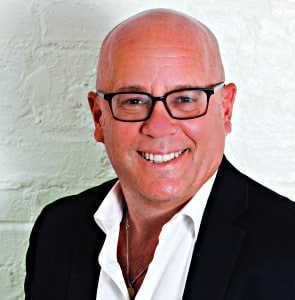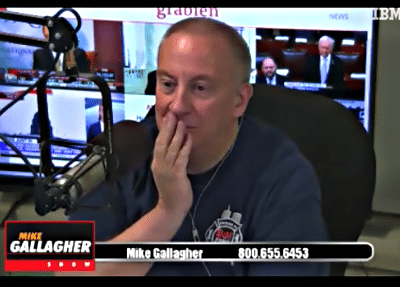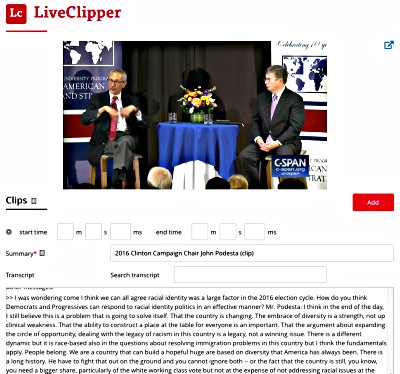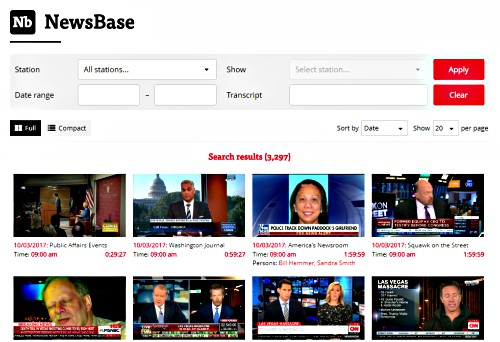
(By Gary Krantz) Tom Elliott is the founder of Grabien, a service that’s streamlining news production. He has a journalism background (The New York Sun, New York Post), but moved into radio as an executive producer for its bigger platform. We had a conversation about the inspiration behind the service, and staying on top of fast-evolving media platforms.
Krantz: So, Tom, what is Grabien?
Elliott: Grabien is a news-clipping service, where we do a lot of the work producers hate. I usually say, “We clip the news so you don’t have to. We save producers time so they can focus on higher-skilled activity. We’ve also added tools to enable them to supplement our content by creating their own clips.
Krantz: Who are some of the most notable or largest media outlets you workwith?
Elliott: Many news sites, plus radio stations and shows. Some notables include Hannity, Ingraham, National Review, Mediaite, IJR (the Independent Journal Review). Most of the top 50 radio shows use Grabien, as well as about half of the top 100 radio stations.
Krantz: What fueled the idea?

Elliott: Producers know recording news content to create clips is a “black hole,” because the news never stops. What I found frustrating was knowing there were a lot of events that every major show was covering, but they were all creating their own versions of the same clips. For example, Obama would give a speech, and everybody would create their own versions of the same headline clips. I thought it’d be more efficient to pool our efforts. That was the original idea; create a database where producers could post pre-edited clips, and other producers could draw from that.
The pain point was not wanting, or having the time, to watch every single news event. As a producer, you want to be as comprehensive as possible — but today, it’s impossible to watch everything. That’s where Grabien has value, because we’ll watch the news for you. And as producers know, grabbing sound is just one part of producing a daily radio job.
Krantz: Who are the end users? Are there competitors?
Elliott: End users: producers, and upstart shows where hosts do their own producing. We’re particularly helpful for smaller shows and stations as we enable them to achieve pitch-perfect production without the hardware and manpower top 10 radio shows enjoy. As to competitors, the closest thing is probably YouTube. But YouTube has a lot of shortcomings, especially from a news production standpoint. It’s difficult to find a specific clip, and there’s no way to control quality. For producers, we provide a lot of advantages.
 Krantz: The platform is so rich; how does it all get produced?
Krantz: The platform is so rich; how does it all get produced?
Elliott: At its core, there’s the database of news clips called the ClipsBank. If we’re pulling content from TV, for example, we’ll clean it up, getting it ready for air, add searchable metadata, and create a corresponding transcript. Then we have tools like the LiveClipper, which enables producers to tune into a live news event, monitor a transcript updating in real time, and then create clips simply by highlighting parts of the transcript they’d like clips of. Clips are available in MP3 up to 1080 HD and are delivered almost immediately.
Another tool is the NewsBase, a searchable and clippable archive of full-length news programming. There’s also the NewsMonitor, which is similar to what you see in the biggest newsrooms, with monitors on all the major news stations. We created a tool where you can watch every news feed simultaneously on a single screen. If anything happens, you pop out one of the players, start pulling clips, and you can still see what’s happening on the other stations. You never miss anything.
Krantz: Is there any proprietary hardware or software needed to access Grabien’s platform?
Elliott: No — we’re trying to reduce the amount of tech needed to produce a radio show.
Krantz: You work with many major radio groups: iHeart, Townsquare, Entercom.
How is the product different today from when you started in 2012?
Elliott: We began by just posting pre-edited audio clips around the clock. Then everybody wanted video, and we found it was surprisingly difficult to access high-quality content. So 
we updated our system so everything originates in HD video. And we’ve been adding new features along the way.
Our newest database is called the RadioBank, which is an archive of virtually every news/talk radio show in the country. We’ve created a similar tool called the PodBank, for podcasts. And the TranscriptBank, which is a database of full-length news transcripts (so, for example, on a Sunday afternoon you can pull down transcripts from all the Sunday shows).
Krantz: How have the events of the last year changed the demands of your clients?
Elliott: Whatever you think of Donald Trump, one thing that’s helped us is the surplus of news and commentary. It gives producers a lot of work because it’s just nonstop and it’s very difficult to stay on top. It really helps to have a tool to follow that never-ending story line.
Krantz: As an entrepreneur, what keeps you up at night?
Elliott: The amount of ideas I have versus Grabien’s current productive capacity. My ideas accumulate more quickly than I’m able to develop them. I have great ideas for new innovations, but I find it frustrating having to queue everything up in a logical progression.
Krantz: What advice do you have for young entrepreneurs?
Elliott: Assume that all of your plans will fail, because usually they do. There will always be problems you could have never foreseen, so you need to be prepared to survive those obstacles. The other thing is, if you don’t have an idea you’re completely passionate about, take a breath. It might be better to join another startup, so you don’t have to take on all this risk for an idea that you’re not 100 percent sure about. You can still get the startup experience, which is immensely valuable, without having to put everything you have into it.





